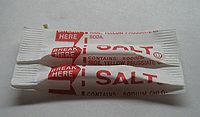From WebMD:
When investigators treated mice with an experimental drug that stopped the gut from synthesizing serotonin, they were able to reverse severe bone loss and essentially cure osteoporosis in the animals.
Serotonin May Hold Key to Halting Osteoporosis. NatureVideoChannel — February 05, 2010 — A drug that reverses osteoporosis in mice looks like a promising candidate for treating the human version of the disease. Gerard Karsenty and his colleagues at Columbia University Medical Center have shown that blocking the neurotransmitter serotonin--secreted from the gut--promotes bone growth. The research appears on-line at www.nature.com/naturemedicine - Yadav et al. Nature Medicine, 7 February 2010. DOI: 10.1038/nm.2098.
Most bone treatments work to block bone loss and make existing bone stronger. One drug, Forteo (teriparatide), does build new bone, but it requires daily injections and is limited to two years of use.
References:
Serotonin May Be a Key to Treat Osteoporosis. WebMD.
When investigators treated mice with an experimental drug that stopped the gut from synthesizing serotonin, they were able to reverse severe bone loss and essentially cure osteoporosis in the animals.
Serotonin May Hold Key to Halting Osteoporosis. NatureVideoChannel — February 05, 2010 — A drug that reverses osteoporosis in mice looks like a promising candidate for treating the human version of the disease. Gerard Karsenty and his colleagues at Columbia University Medical Center have shown that blocking the neurotransmitter serotonin--secreted from the gut--promotes bone growth. The research appears on-line at www.nature.com/naturemedicine - Yadav et al. Nature Medicine, 7 February 2010. DOI: 10.1038/nm.2098.
Most bone treatments work to block bone loss and make existing bone stronger. One drug, Forteo (teriparatide), does build new bone, but it requires daily injections and is limited to two years of use.
References:
Serotonin May Be a Key to Treat Osteoporosis. WebMD.





